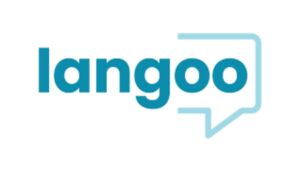With the help of our revolutionary Neural Machine Translation technology, Lengoo is able to offer an unparalleled translation experience. Get a state-of-the-art translation service that’s better than what most experts could provide while maintaining a highly qualified and flexible team. Additionally, they could be able to establish a sizable lead with a fresh $20 million B financing.
It will also be able to interface with more corporate stacks. Along with new investors Polipo Ventures and Volker Pyrtek, the round also included existing investors Redalpine, Creathor Ventures, Techstars (from which programme the firm was born), and angels Matthias Hilpert and Michael Schmitt.
The majority of people who employ AI-based translation software do so for routine, inconsequential activities like comprehending a single phrase or quotation. For a business that offers technical documentation in 15 different languages, those basic services won’t cut it; but, Lengoo’s unique machine translation models just could.
These days, translation services handle that task on their behalf, using skilled speakers to produce high-quality translations on demand. Since the occasional Portuguese user who uses Google’s built-in webpage translation on a Korean website is a very niche case and since translating social media posts or individual sentences isn’t really something you could or would farm out to professionals, the rise of machine translation as an everyday tool hasn’t had as much of an impact on them as you might think.
In these well-known situations, “good enough” is the guiding principle because everyone only actually needs or desires the bare meaning. However, it won’t do to have the instructions, cautions, legal agreements, or technical documentation perfect in one language and just fine in the other nine if you’re releasing a product in 10 separate marketplaces speaking 10 different languages.
The translation industry is large, worth billions, and it is here to stay. The requirement to publish a document, piece of software, or live website in numerous languages—possibly dozens—is simply too routine a process.
Lengoo was developed by a team that was attempting to automate the process between businesses and translators.
CEO and founder Christopher Kranzler stated that automating the translation itself was the obvious next step. The aim is to get the models to the point where they’re truly usable and the human has fewer translations to make. Despite this, “we’ll still need humans in the loop for a long time.”
That’s not at all an outlandish aim, given how machine learning skills are continually evolving. Other businesses have already taken that step; take DeepL and Lilt, for example. These businesses argued for their solutions by demonstrating significant advancements above Google and Microsoft frameworks, without ever professing to do so.
Initially, there was opposition, Kranzler acknowledged. People use Google Translate for routine translations and see an improvement in the quality since DeepL and Google have essentially been training the market. People increasingly recognise that machine translation is effective in a business setting if done correctly. We can argue that we’re quicker and less expensive, but also that the consistency of the quality improves.
Lengoo refines their work by concentrating on speed and specificity, which entails creating a language model that incorporates all the client’s jargon, stylistic preferences, and formatting needs. In order to achieve this, they create a custom language model by constantly incorporating feedback from the translation process as well as training it using the customer’s own papers and websites.
Conclusion
Lengoo, however, intends to create its own, more adaptable neural machine translation architecture that combines the numerous associated pipelines and procedures. Lengoo will be able to expand to more European markets and North American ones thanks to the $20 million round, which was headed by Inkef Capital. Although the outcome wouldn’t exactly improve in real-time, it would incorporate the most recent facts in a much speedier and simpler manner.
FAQs:
Ans. Lengoo’s headquarters is in Berlin, Berlin, Germany.
Ans. Lengoo is in the translation and localization sector.
Ans. lengoo was founded in 2012.
Ans. Lengoo was founded by Christopher Kränzler, Alexander Gigga, & Philipp Koch-Buettner.
Other Related Posts-
Postscript Raises $35M for Shopify Retail
WPC2021: Login, Registration, and LIVE Dashboard Access

